Vinegar is pretty much underrated. When people think of vinegar, a garden isn’t really the next thing that comes to mind. But believe it or not, there are a lot of benefits to using vinegar in your garden.
Use it to either strengthen your plants or eliminate pesky weeds growing in your garden. They can also be used on garden-related equipment such as pots and tools.
Many gardeners have come up with ways to use vinegar to get rid of many insects found in the garden by mixing it with water so that it only harms the insects and not the plants.
Mostly vinegar is used because of its acidic nature, which has a wide variety of uses in the garden, such as killing bugs, cleaning things, and improving the health of some of your plants.
Let’s not forget that since vinegar is very cheap, it is a cost-effective way of taking care of your garden.
Here are some of the many ways vinegar can help you care for your garden.
Cleaning Clay Pots
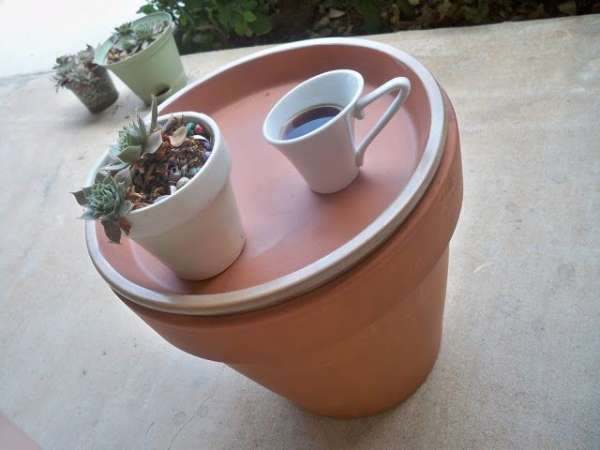
Clay pots are an amazing addition to any garden not just because of its technical benefits but also because of their beauty. But as many gardeners can attest, they tend to lose their original color over time due to all of the minerals and salts they soak up from the soil.
To clean your clay pots with vinegar, you will need a bucket to soak the pot. You will also need some vinegar, water, and a cleaning brush. Fill the container with water and vinegar to a ratio of 4 parts water to 1 part vinegar.
Soak your pot in the mixture for about 5 minutes or more, depending on the degradation of the pot. Use the brush to clean off all the things in the pot slowly. Once you have scratched away all the dirt and cleaned the surface, leave it to dry. Your pot should be as good as new!
Our top choice for clay pots is Bloem’s Fiskars Terrapot Planters, available in a plethora of sizes.
Cleaning Rust from Garden Tools
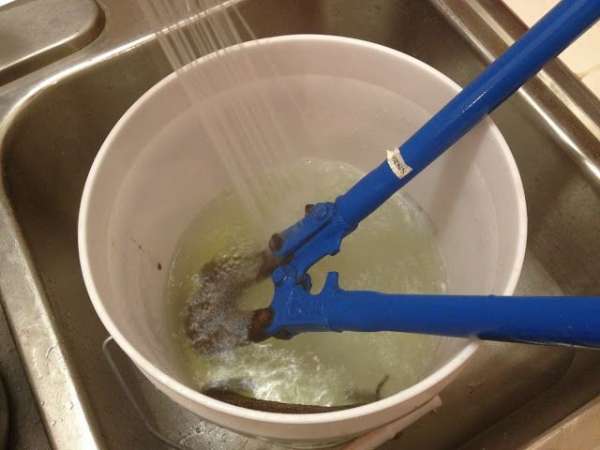
Vinegar, due to its acidic nature, works great against rust. So, previously discarded garden tools that have gathered rust can be re-used by following this very simple process.
Get a large container for the garden tools and fill it with undiluted white vinegar. Soak the tools in the vinegar and leave it for a little while. Then rinse and clean the tool using either a cloth or a brush. You have beaten the rust!
Removing Ants
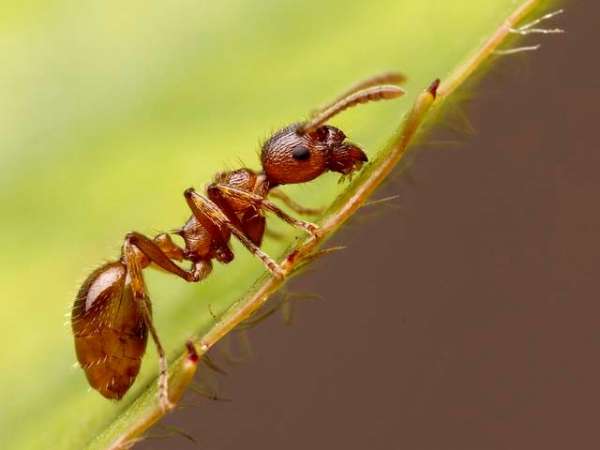
It has been found that ants avoid vinegar like the plague, which is very good news for gardeners who are annoyed by the presence of ants in their gardens. Ants have a tendency to eat away at fresh veggies and fruits.
Get a spray bottle and fill it with equal parts water and vinegar. Spray the anthills with vinegar to get rid of them. It’s best if you also see the routes these ants take and spray their entrances to your home with vinegar to keep them out.
If you want to know more about garden insects and how to correctly identify them, be sure to check out Garden Insects of North America: The Ultimate Guide to Backyard Bugs.
Animal Repellent

Many animals that destroy gardens, such as rats, cats, dogs, moles, etc., hate the vinegar smell. So, if you have pets that run rampant amongst your plants or if you have a problem with the local wildlife coming in every day and destroying your plants, vinegar is an easy and simple solution for your problems.
Take a few pieces of cloth and soak them in vinegar. Place these vinegar-soaked clothes around your garden, and all the animals will stay away. It’s best if you soak these clothes in vinegar again after every week for continued protection.
If you want to know how to create or install very protective fences around your garden, check out Fences for Pasture & Garden.
Weed Killer
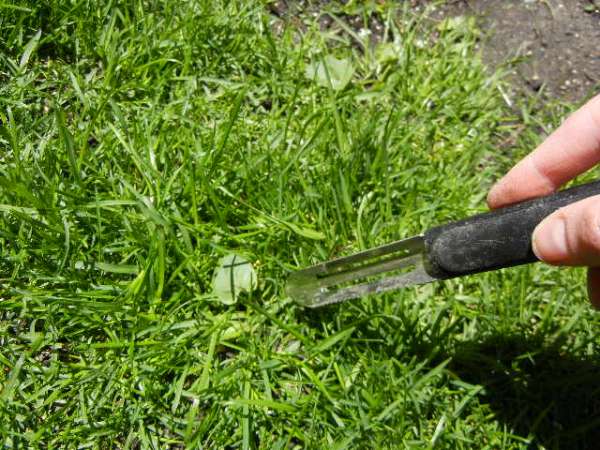
Vinegar is a very good and cheap weed killer. It works by sucking the moisture from the plant until it dies, so you need to be careful so that it doesn’t touch any of your plants or crops.
If used properly, it can remove weed from your garden within 2 to 3 days.
Another use is for when small weeds are growing out of the walkways. Just spray at the plants and make sure that the mixture is properly drained in the cracks so that it doesn’t grow again.
Here’s how you use vinegar to kill weeds:
First, get 1 gallon of white vinegar with a 5, 10, or 20% concentration level, 10 and 20% works faster. The 5% concentration vinegar is basically the vinegar that you buy at your local supermarket.
Mix one cup of salt in it and add one tablespoon of lemon juice, BUT only if it is 5% vinegar. Don’t add 10 or 20% concentration. Add 2 tablespoons of dish soap and stir it well. Now put the mixture in the sprayer and kill the weed.
Take the precaution of wearing gloves since the mixture is not good for your skin. Also, don’t spray too much on the soil since large quantities can make the soil infertile. Soak the weed thoroughly, and it will be gone in 2 to 3 days.
Insect Spray
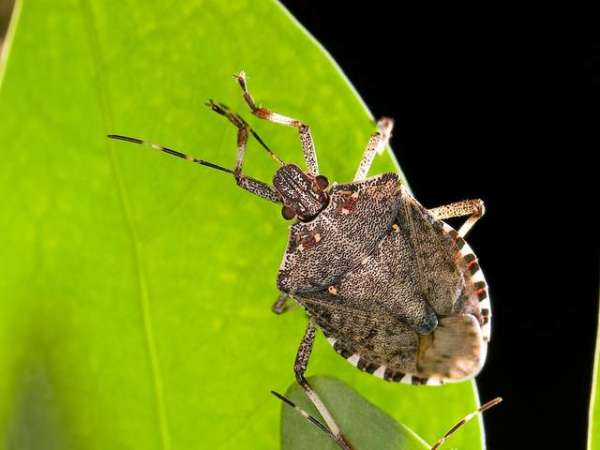
Spray in your garden about once a week, and for extra protection, you can spray around the perimeter of your garden to keep the insects out. Due to the acidic nature of the vinegar, it can be quite potent and harmful to your plants, so avoid spraying directly on to your plants and flowers.
If you want another reference book about garden pests, check out Pests of the Garden and Small Farm: A Grower’s Guide to Using Less Pesticide.
Acid Happy Plants
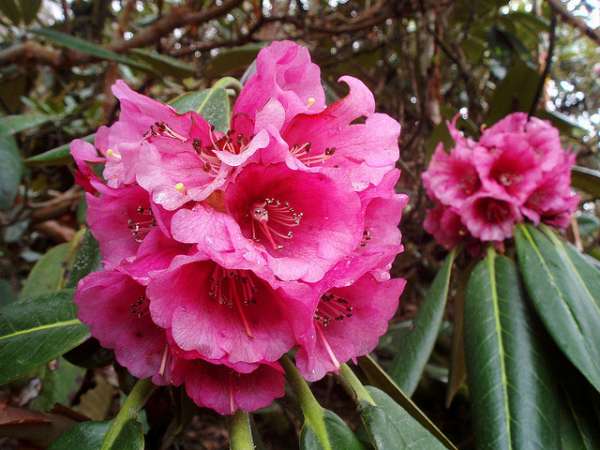
Some plants actually prefer slightly acidic conditions, and they grow better that way. Some of these plants include rhododendrons, gardenias, and azaleas. A cup of distilled white vinegar to a gallon of water is a good ratio.
Spray the plants with this mixture regularly since the effects are temporary. But it can still give the plants a quick acidity boost in their pH level.
If you need a reference for plant nutrition, check out Plant-Based Nutrition by Julieanna Hever.
Removing Fungus
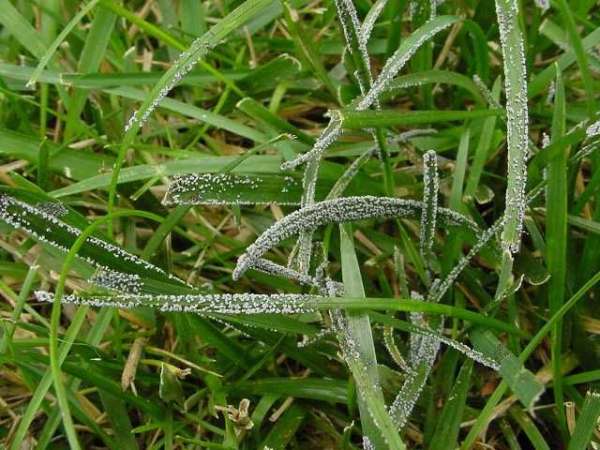
Many people might be surprised to know that vinegar can remove fungus. Here is a small and easy-to-make recipe that can be made with ingredients found in your home.
Take some brewed chamomile tea and add 2 tablespoons of vinegar to it. Spray this mixture on the affected plants in your garden, and all will be cured.
Due to all the ingredients being natural, it has no adverse effects on any of the plants and is also organic.
Killing Slugs and Snails
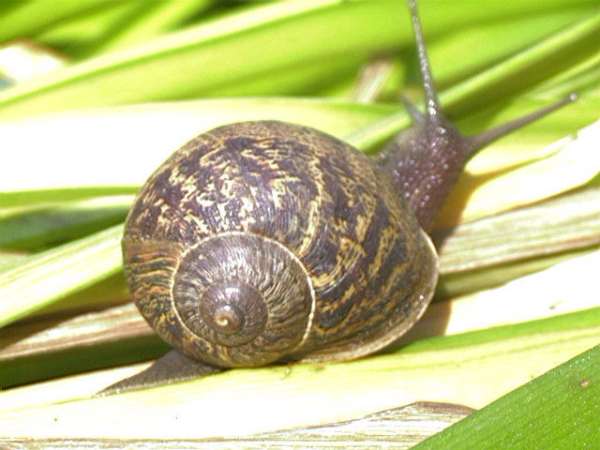
Snails and slugs can devastate your garden; many gardeners consider them the worst pests that can infiltrate a garden. There is nothing gardeners hate more than seeing a snail chomp down on their hard work.
Many gardeners prefer using vinegar to remove snails from their gardens since it kills the snails and slugs. You can use undiluted vinegar or mix it with equal parts water. It’s best to get the snails to converge on one spot rather than spraying each individually. Take a flower pot and prop it up from one side.
For bait, use orange, lemon, lime or grapefruit rinds upside down. Leave it overnight, and in the morning all the slugs would have gathered there to escape the suns heat. Now spray away!
If you like to know how to set up your vegetable garden correctly, be sure to check out 27 Tips For Beginner Vegetable Gardeners.
Remove Fruit Flies
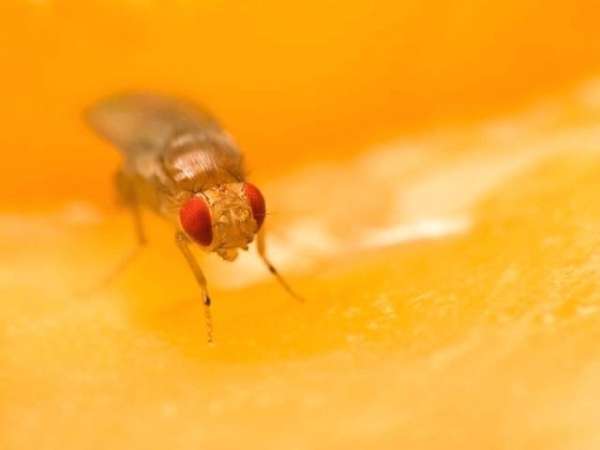
Fruit flies are the worst since they destroy all the hard work you put into growing your crops. Now, using vinegar, you can easily remove them from your garden. The plan is to bait them into a trap and contain them.
To make this trap, you will need 1 cup of water, ½ cup of apple cider vinegar, ¼ cup of sugar, and 1 tablespoon of molasses.
Hang a container on the affected fruit tree, then place the mixture of all the above-mentioned ingredients into the container.
This will attract all the fruit flies in the vicinity of the fruit tree and trap them in the container. Your tree is now officially free of fruit flies. This method also works great for catching moths.
Life Extender of Cut Flowers
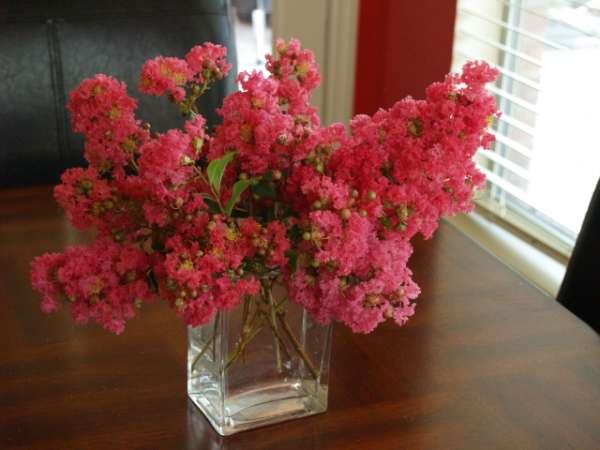
Many are unaware that vinegar is actually a great way to extend the life of your cut flowers. All you need to do is follow these 8 simple steps.
Add 1 quarter warm water to a vase. Add 2 tablespoons of sugar to the water; this will help nourish your flowers. Add 2 tablespoons of white vinegar; this will prevent the growth of bacteria. Remove all the lower leaves from the stem. Cut 1 to 2 inches off the stems at an angle while they are underwater.
Change the water every other day and re-cut the stems each time. There you go, a simple hack for extending the life of your cut flowers using vinegar in your garden.
Hand Cleaning
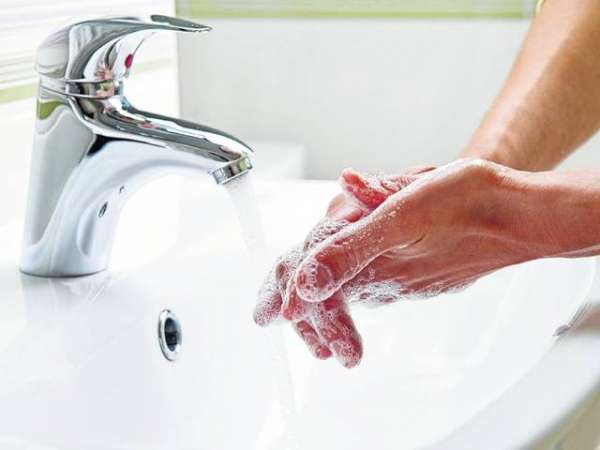
When working in the garden, many people don’t wear gloves, which causes their hands to get dirty and infected with all kinds of bacteria and other impure substances.
Also sometimes when you are picking fruits or doing some general cleaning of the plants, your hands tend to get stuck with the juices of the fruits, leaving them very sticky and dirty.
So, after your work in the garden is complete, wash your hands in distilled white vinegar to remove all impurities, kill all the bacteria, and also get rid of all the stickiness on your hands.
To top it all off, you could also use PURELL’s Naturals Advanced Hand Sanitizer for an extra layer of protection against disease-causing germs.
Cleaning the Birdbath
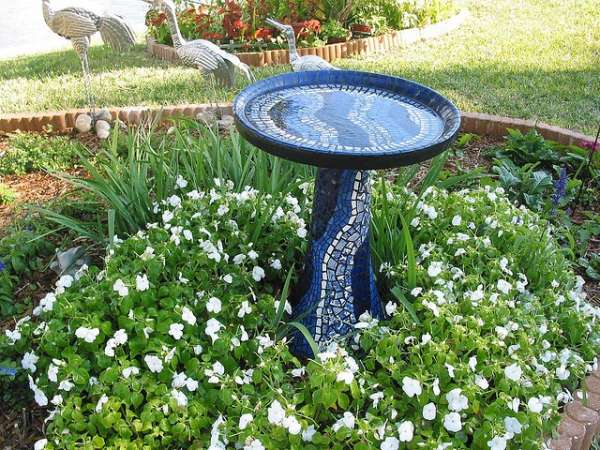
As you all know, things get dirty and erode over time, and the birdbath is no different. Using vinegar and scrubbing the birdbath with vinegar can be easily cleaned, but remember to rinse it thoroughly after you are done.
Firstly, clean out any stagnant water left in the bath. Then, manually remove any dirt or contamination deposits left. Then make a mixture of 1 part distilled white vinegar and nine parts water; remember to mix thoroughly.
Cleaning Procedure
Dip a scrubbing material, such as a brush, into the mixture. Scrub the basin, especially the lip, and ensure the birds stay away while you’re cleaning. Rinse it out thoroughly until there is no foam anywhere in the basin.
Leave the bath for a couple of hours to dry it out properly, and then refill it with clean water. It’s a nice thing, to make sure that the local birds get a nice and clean bath.
If you need more information regarding garden layout, check out Free Vegetable Garden Layout, Plans and Planting Guides.
To Summarize
As you can see vinegar has diverse uses and can be used in many ways to help your life in the garden and not just by helping plants but also by helping you.
Vinegar is most important because of its acidic pH which is not too low that it may completely destroy the plants and soil but neither is it so high that its effects become neutral.
And to top it all off, the use of vinegar in your garden proves to be a natural ingredient found in all homes so it’s organic and healthy for the garden while at the same time being very cheap and convenient way to take care of your garden.
A Word of Warning
Since vinegar is acidic, it can be used to decrease the pH level of your soil. Just add some vinegar to your watering can. But only do this if the soil pH level goes past the recommended levels.
PS: If you want more tips for your vegetable garden, check out Weird Vegetable Gardening Tips That Actually Work.
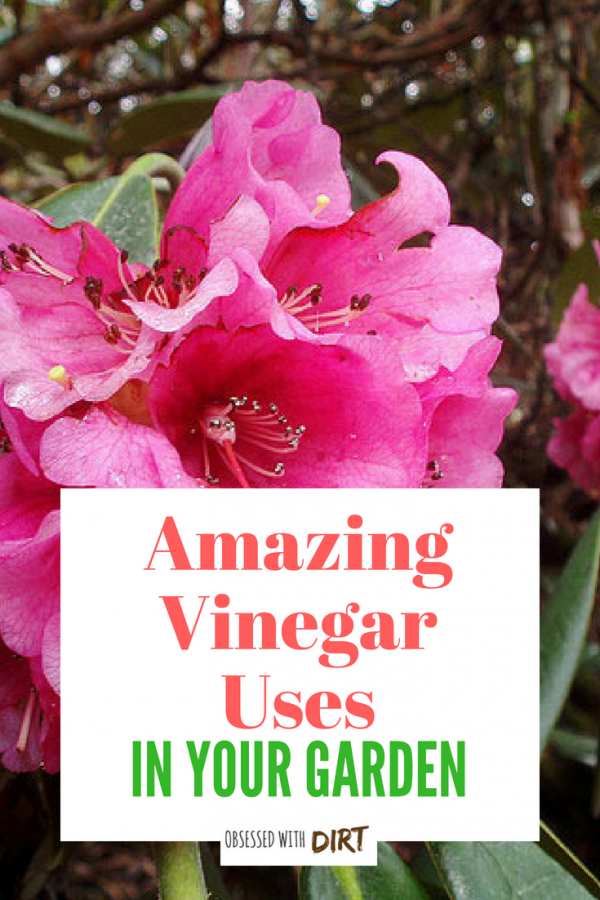
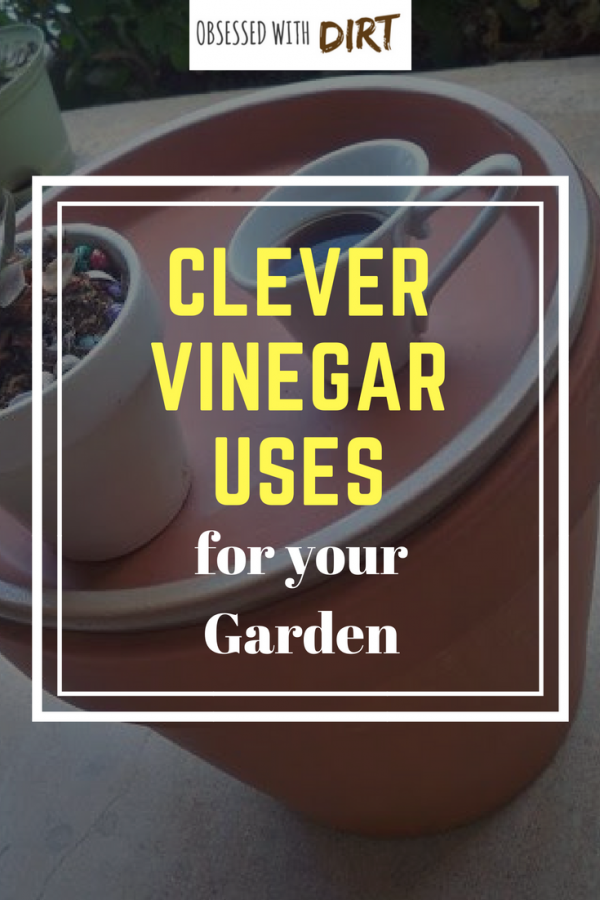
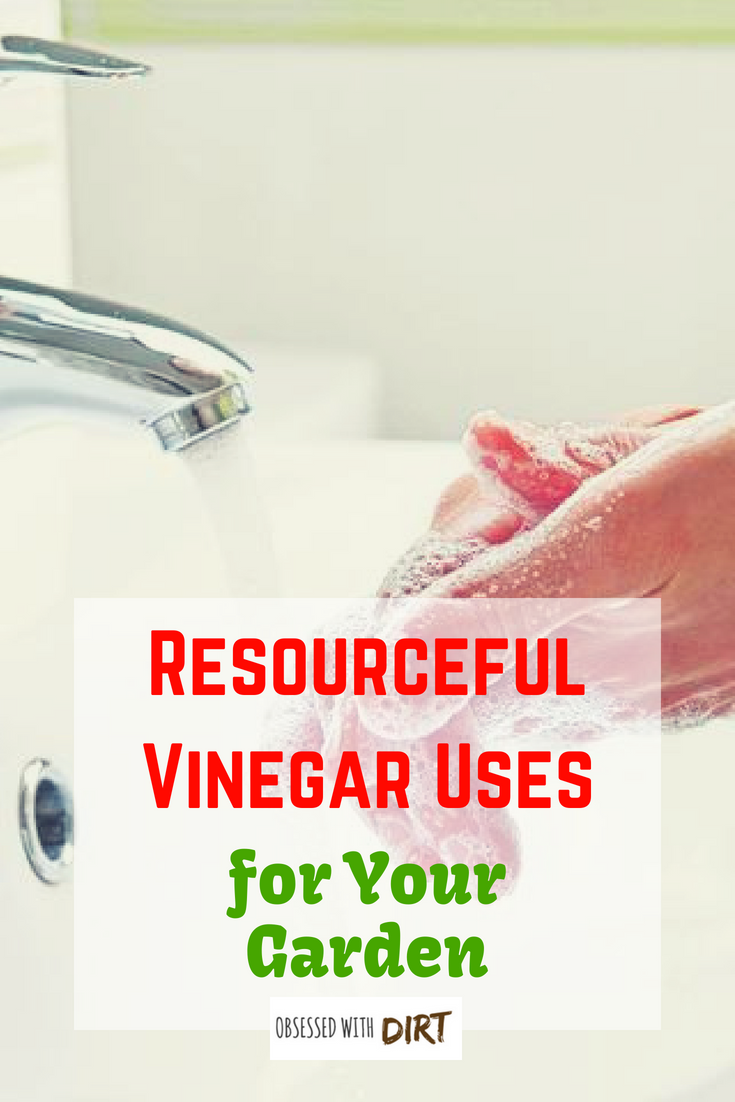
- Everything You Wanted to Know About Red Tamarillos - June 2, 2025
- A Guide to Tulips: Everything You Need to Know & More… - June 2, 2025
- Guanabana: Description, Flavor, Benefits, And Uses - May 27, 2025
